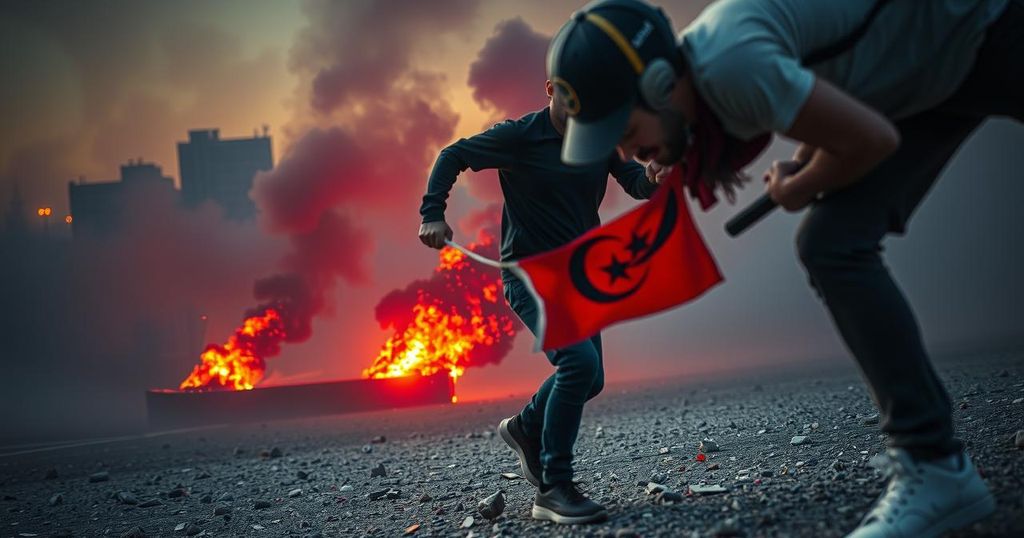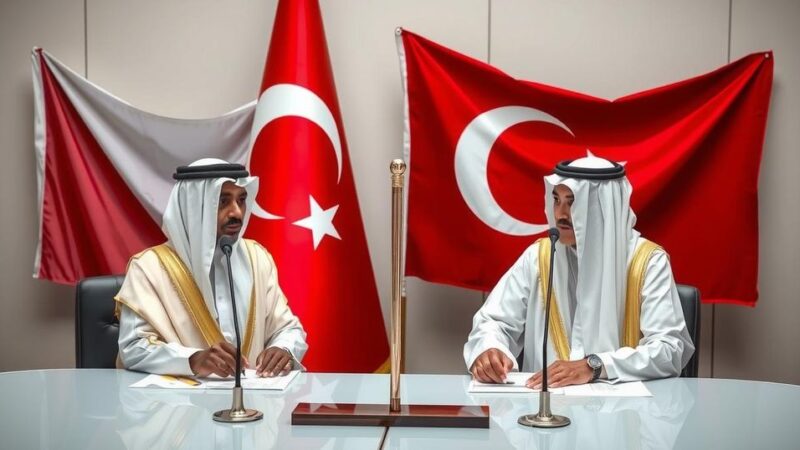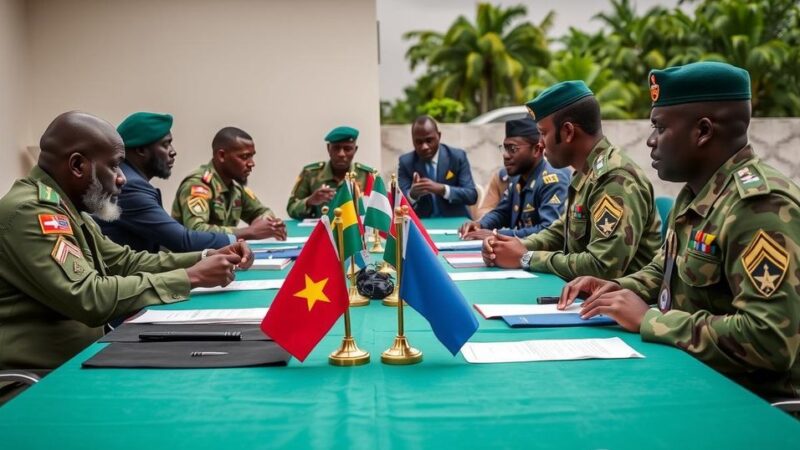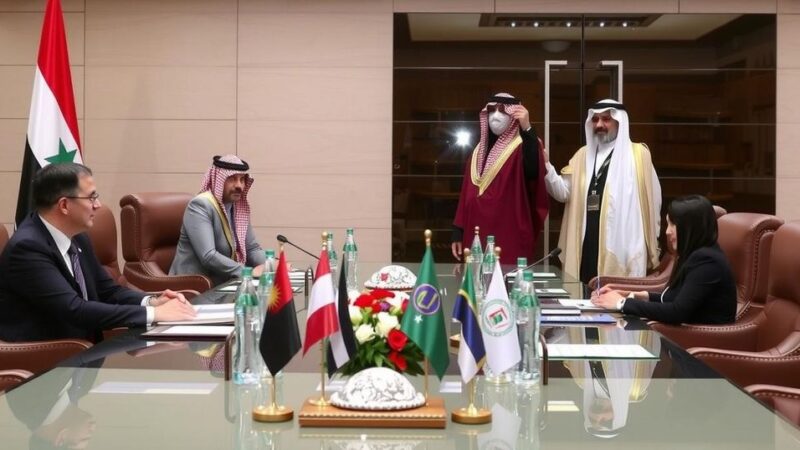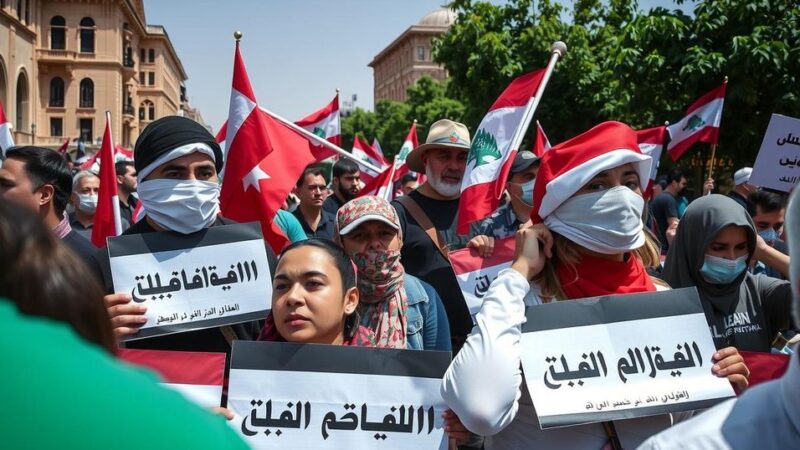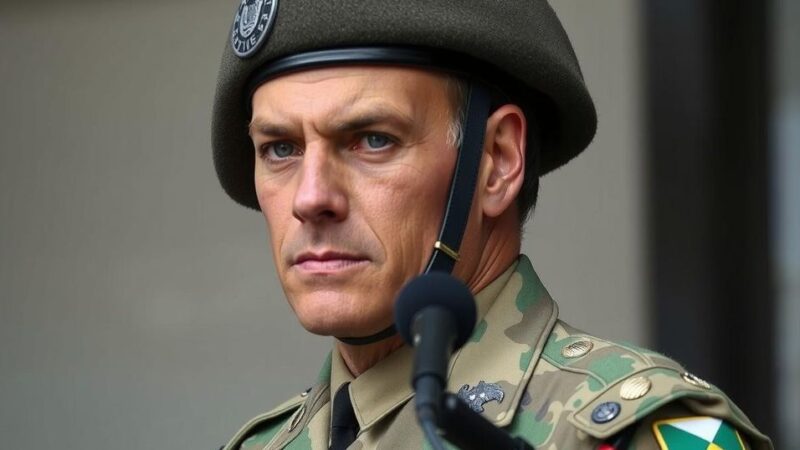The year 2024 was marked by heightened conflict in the Middle East, with Israel’s operations against Hamas, Hezbollah, and direct engagements with Iran dominating the landscape. The downfall of Assad’s regime in Syria represented a key turning point amidst these developments. Humanitarian crises proliferated, highlighting the urgent necessity for peace initiatives and international intervention.
The year 2024 was characterized by a significant escalation of conflict throughout the Middle East. Following Hamas’s attack on October 7, 2023, Israel intensified its military operations in Gaza, resulting in a staggering death toll and widespread devastation. Concurrently, Israel engaged Hezbollah in Lebanon and entered direct confrontations with Iran. The turmoil reached a pinnacle with the collapse of Bashar al-Assad’s government in Syria, signaling a seismic shift in the regional power dynamics. Amid these developments, humanitarian crises emerged, with millions displaced and suffering dire consequences of war.
In Gaza, Israel’s relentless bombardment since October 2023 has claimed over 45,000 lives, as reported by the Hamas-run health ministry, under severe siege. Over 2.1 million residents face immense hardship, experiencing famine and disease due to the blockade. Major operations targeted areas such as Rafah, leading to mass displacement and destruction of infrastructure. Despite claims of progress, truce talks have stagnated, and hostage situations persist, complicating the outlook for peace.
Meanwhile, conflict spilled into Lebanon as Israel’s military operations targeting Hezbollah resumed, following the assassination of its leader Hassan Nasrallah. An intense aerial and ground offensive resulted in significant casualties, with a ceasefire implemented only after two months of warfare that left 4,000 dead. This escalation can be traced to Hezbollah’s ongoing attacks during the Gaza conflict and Israel’s operational goals to eradicate threats along its borders.
For the first time in twenty years, Israel confronted Iran directly, marking a departure from longstanding shadow conflicts. The assassination of Iranian military leaders and retaliatory missile attacks from Iran defined the new phase of hostility, culminating in Israel’s strategic air strikes on sites within Iran. This sharpened retaliatory stance increased tensions, eliciting threats of significant Iranian responses, reflecting the fragile security environment of the region.
Furthermore, the drastic political shift in Syria occurred with the abrupt fall of Assad’s regime, attributing to the power vacuum left by diminished support from Hezbollah and Russia. The resultant regime collapse heralds an uncertain future for Syria, as new leadership emerges amid long-standing conflict dynamics. Despite international perceptions of instability, opportunities for dialogue emerged, suggesting potential pathways towards governance and stability in the post-Assad landscape.
The Middle East has been embroiled in conflict for decades, with particular focus on the Israeli-Palestinian conflict and the Syrian civil war to follow. The events of 2024 reflect an intensification of these long-standing tensions, as Israel faces multi-front warfare against Hamas in Gaza, Hezbollah in Lebanon, and reacts against Iranian influence. This year was pivotal due to increased direct confrontations and the dramatic political transformations in Syria, marking the end of Assad’s prolonged governance. Humanitarian crises proliferating from these conflicts underscore the urgent need for international attention and resolution efforts.
In summary, the year 2024 witnessed unprecedented levels of violence and political upheaval across the Middle East. The escalation in Gaza, renewed conflict in Lebanon, and Iran’s direct involvement signify a deterioration of regional stability. The fall of the Assad regime in Syria presents both risks and opportunities for reshaping alliances and governance. As humanitarian crises deepen, the imperative for diplomatic engagement and conflict resolution has never been more critical.
Original Source: www.france24.com

